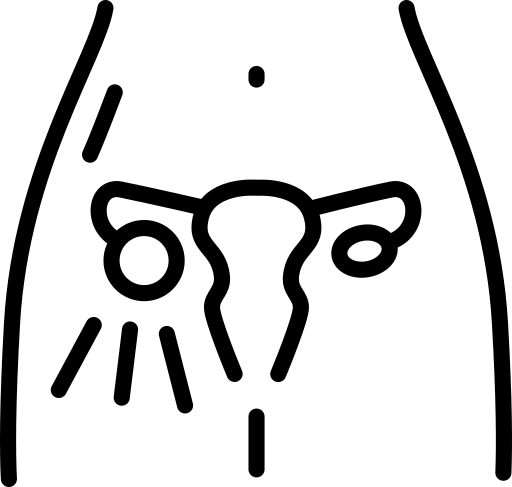Endocrine/Hormonal Disorders
An endocrine disorder results from the improper function of the endocrine system, which includes the glands that secrete hormones, the receptors that respond to hormones, and the organs that are directly impacted by hormones. Dysfunction can occur and cause wide-ranging effects on the body.
Some of the most common types of endocrine disorders include:

Diabetes

Hyperthyroidism

Hyperthyroidism

PCOS
- Diabetes
- Hyperthyroidism
- Hypothyroidism
- PCOS

Diabetes
Diabetes is a condition that happens when your blood sugar (glucose) is too high. It develops when your pancreas doesn’t make enough insulin or any at all, or when your body isn’t responding to the effects of insulin properly. Diabetes affects people of all ages. Most forms of diabetes are chronic (lifelong), and all forms are manageable with medications and lifestyle changes. The technical name for diabetes is diabetes mellitus. Another condition shares the term “diabetes” — diabetes insipidus — but they’re distinct. They share the name “diabetes” because they both cause increased thirst and frequent urination. Diabetes insipidus is much rarer than diabetes mellitus.
Types of Diabetes
- Type 1 diabetes
- Type 2 diabetes
- Gestational diabetes
- Maturity onset diabetes of the young (MODY)
Signs and Symptoms
- Increased thirst
- Frequent urination
- Increased hunger
- Unintended weight loss
- Fatigue
- Blurred vision
- Slow-healing sores
- Frequent infections
- Numbness or tingling in the hands or feet
- Areas of darkened skin, usually in the armpits and neck


Hyperthyroidism
Hyperthyroidism, also called overactive thyroid, is a condition where your thyroid makes and releases high levels of thyroid hormone. This condition can make your metabolism speed up. That can cause many symptoms, such as weight loss, hand tremors, and rapid or irregular heartbeat.
Types of Hyperthyroidism
- Diffuse toxic goiter (Grave’s disease)
- Toxic multinodular goiter (Plummer disease)
- Toxic adenoma
Symptoms
- Losing weight without trying
- Fast heartbeat, a condition called tachycardia
- Irregular heartbeat, also called arrhythmia
- Pounding of the heart, sometimes called heart palpitations
- Increased hunger
- Nervousness, anxiety and irritability
- Tremor, usually a small trembling in the hands and fingers
- Sweating
- Changes in menstrual cycles
- Increased sensitivity to heat
- Frequent bowel movements
- An enlarged thyroid gland called a goiter, which may appear as a swelling at the base of the neck
- Tiredness and muscle weakness
- Sleep problems
- Warm, moist skin
- Thinning skin
- Fine, brittle hair

Hypothyroidism
Hypothyroidism is a common condition where the thyroid doesn’t create and release enough thyroid hormone into your bloodstream. This makes your metabolism slow down. Also called underactive thyroid, hypothyroidism can make you feel tired, gain weight, and be unable to tolerate cold temperatures.
Signs and Symptoms
- Fatigue
- Weight gain
- Trouble tolerating cold
- Joint and muscle pain
- Dry skin or dry, thinning hair
- Heavy or irregular menstrual periods or fertility problems
- Slowed heart rate
- Depression


Polycystic Ovary Syndrome (PCOS)
Polycystic ovary syndrome (PCOS) is a set of symptoms caused by a problem with a woman’s hormones. It affects the ovaries. These are the small organs that store a woman’s eggs. But it can also affect the rest of the body. PCOS is a very common condition in women of childbearing age. In some cases, it can lead to serious health issues if not treated.
If you have PCOS, your ovaries produce unusually high levels of hormones called androgens. This causes your reproductive hormones to become imbalanced. As a result, people with PCOS often have irregular menstrual cycles, missed periods, and unpredictable ovulation. Small follicle cysts (fluid-filled sacs with immature eggs) may be visible on your ovaries on ultrasound due to lack of ovulation (anovulation). However, despite the name "polycystic," you don’t need to have cysts on your ovaries to have PCOS. The ovarian cysts aren’t dangerous or painful.
PCOS is one of the most common causes of infertility in women.
Signs and Symptoms
- Missed periods, irregular periods, or very light periods
- Ovaries that are large or have many cysts
- Extra body hair, including the chest, stomach, and back (hirsutism)
- Weight gain, especially around the belly
- Acne or oily skin
- Male-pattern baldness or thinning hair
- Infertility
- Small pieces of extra skin on the neck or armpits (skin tags)
- Dark or thick skin patches on the back of the neck, in the armpits, and under the breasts
